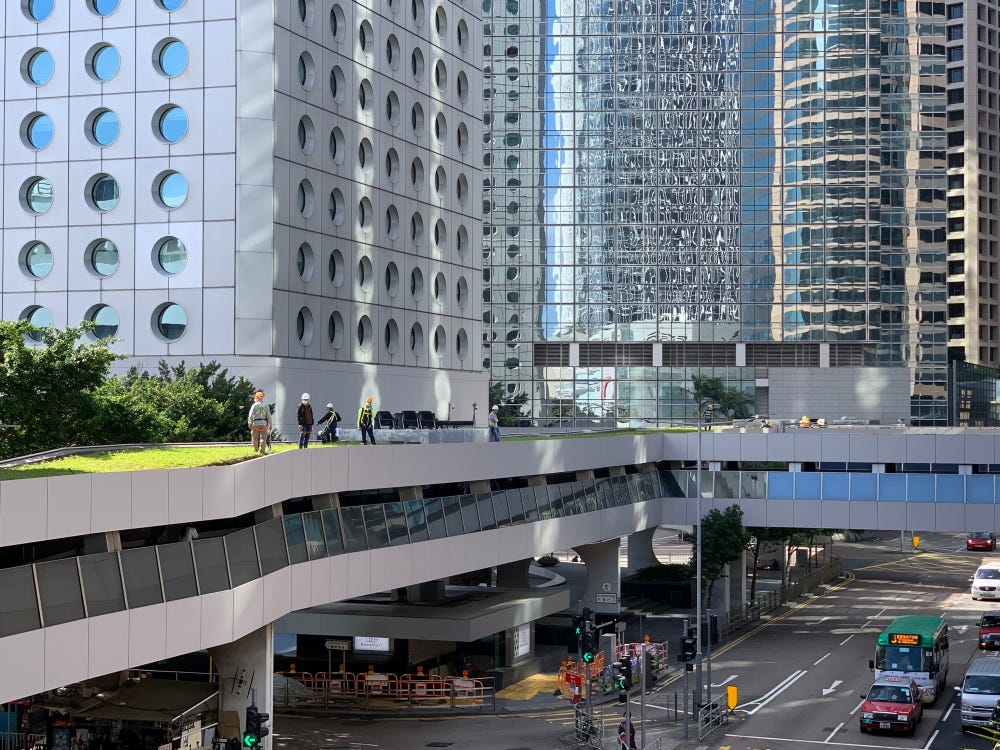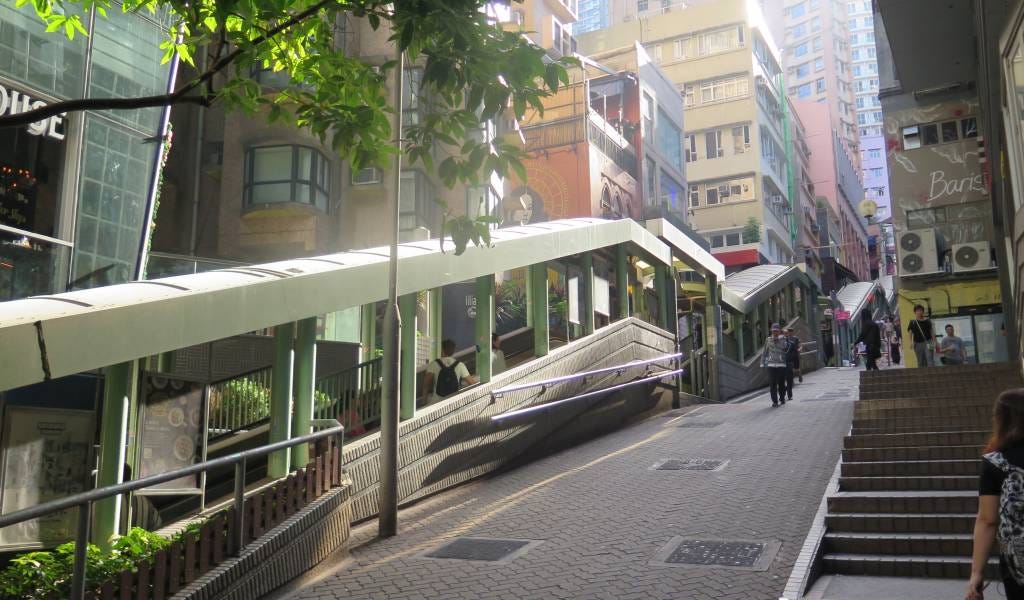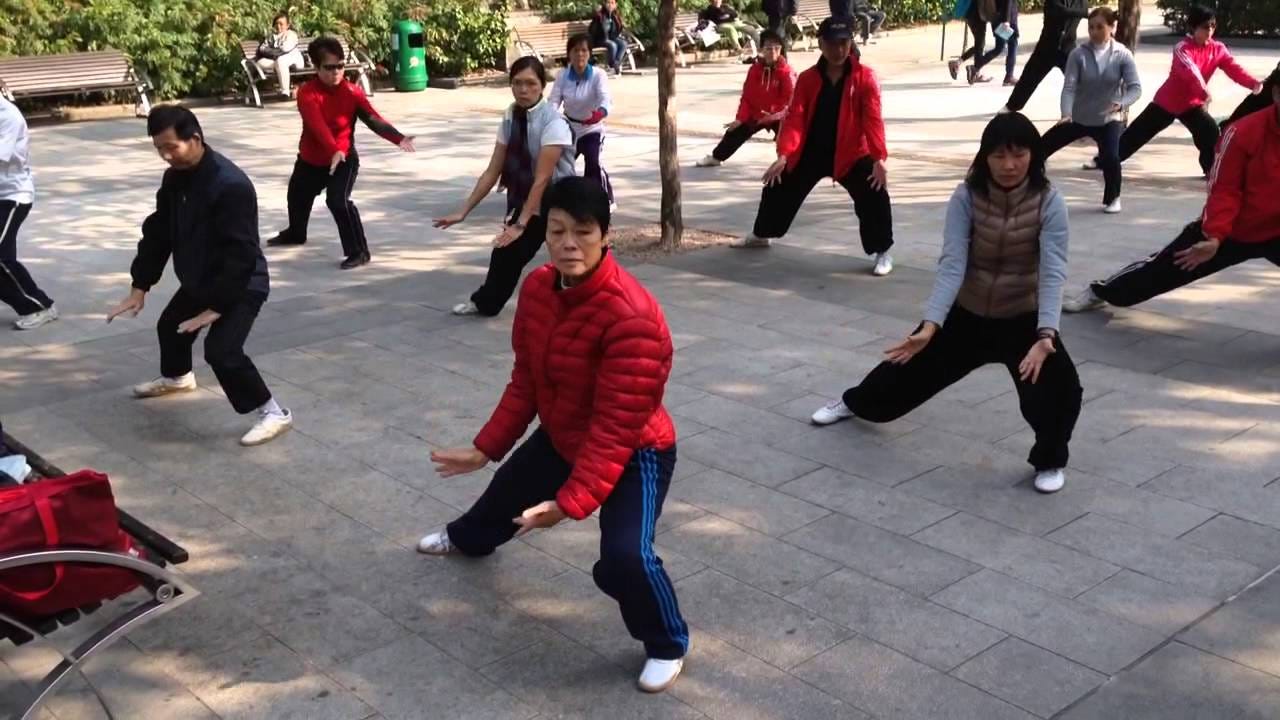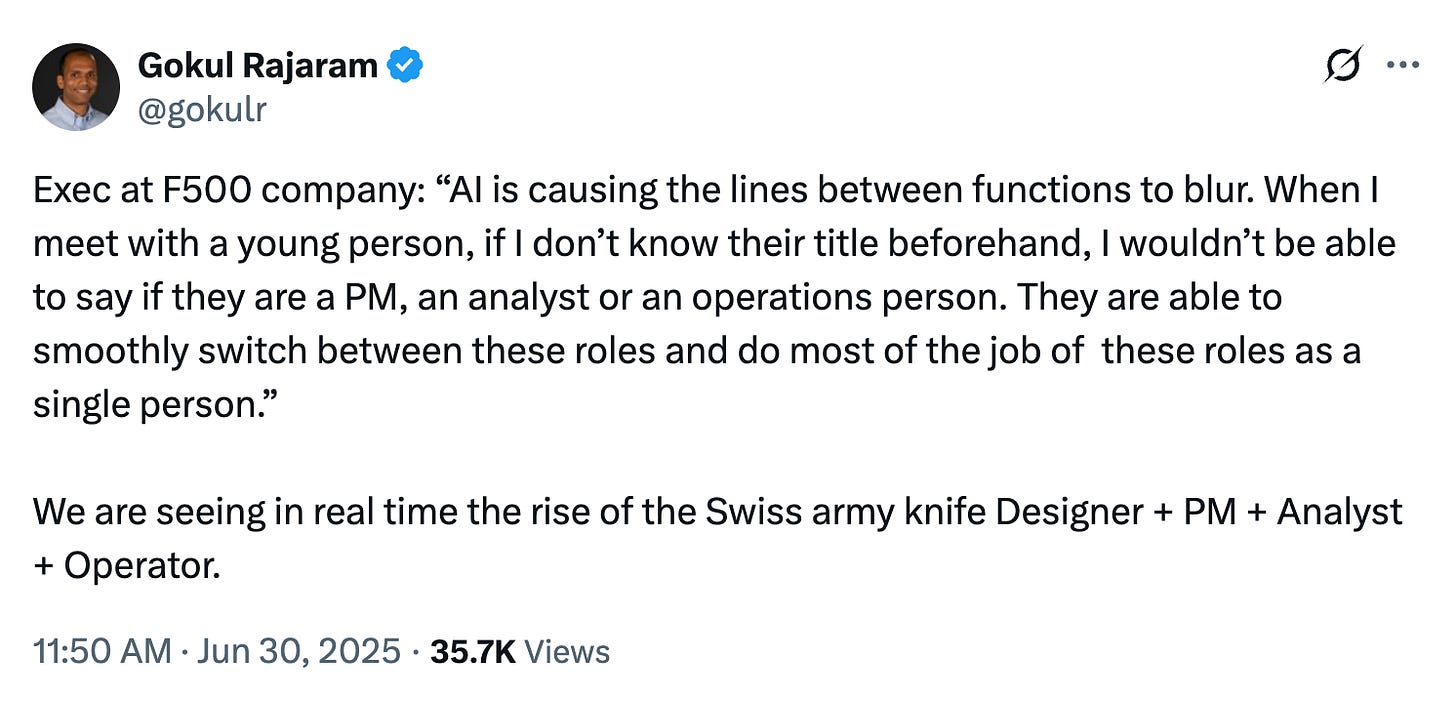How to Live Longer
The simple longevity strategy that can add a decade to your life.
Welcome to the 134 new subscribers who have joined our community of 50,119 readers! If you haven’t subscribed, join us below:
I just returned from two weeks in Hong Kong. My home!
While I was there, I learned something that surprised me: Hong Kong has the highest life expectancy in the world.
As of the latest data, women live to 88, men to 83.
This is eight years longer than in the U.S., where the average is 76. That’s not a marginal lead … it’s a full five to six years longer than in most developed countries.
How did that happen?
The obvious answer is “good healthcare,” but that doesn’t explain the full picture.
Many countries have advanced medicine. Hong Kong’s advantage is more foundational – the result of hundreds of habits people have made daily over decades.
Here are the main things I’ve observed:
They walk everywhere.
Most people don’t drive. They take the MTR (subway), which means walking to the station, changing lines, and walking home. On average, people in Hong Kong walk about 6,880 steps a day — over 2,000 (+40%) more than the typical American. That doesn’t sound like a lot, but over the years, it adds up, and that turns out to be one of the most reliable predictors of how long you live.Their food is light by default.
In Cantonese cooking, you’ll find little oil, meat, or sugar, and almost no dairy. Meals are steamed or boiled, occasionally given a quick stir-fry with minimal oil. Most meals include vegetables, seafood (such as steamed fish), and soup, all served in small portions. It’s not that people are trying to be healthy; it’s that food has never been industrialized in the same way that Western diets have, with mass processing, additives, and artificial ingredients.Almost no one smokes and drinks.
Hong Kong’s smoking rate is 9%, compared to a global average of 17%. That alone accounts for a large share of the difference in heart disease and cancer rates. Barely anyone consumes alcohol too – only 8% of adults drink regularly vs 55% in the U.S. But it’s not that people in Hong Kong don’t have their vices, though, as 64% of the population gambles! (card games and horse-race betting)
The city forces movement.
Hong Kong is dense and vertical. You constantly walk up hills. You climb stairs. You carry groceries. Even errands require some degree of physical effort. That turns out to be more effective than gym memberships. It’s also probably why everyone there seems to have big calves.Moderation is the norm.
There’s a cultural bias toward not overdoing things — in food, alcohol, even ambition. People eat until they’re not hungry, not until they’re full, and there’s a Cantonese saying for it: 適可而止 … which translates to the idea of “not overdoing it.” There’s no binge culture and all-you-can-eat buffets here and it turns out that this kind of restraint, practiced consistently over a lifetime can be pretty damn healthy.Active community participation.
Older adults remain an integral part of everyday life. They live with family, walk through parks, chat with neighbors, and do their grocery shopping in the same markets as everyone else. This type of daily connection makes a big difference. Loneliness increases the risk of early death by over 26%—it’s now considered a public health epidemic in places like the U.S.Adoption of mind-body rituals.
You’ll see people in Hong Kong practicing Tai Chi or Qigong at the parks every morning. It looks simple, almost too slow to matter, but it works by calming the mind, keeping the joints moving, and helping with balance and sleep. It’s the eastern equivalent of breathwork, yoga, and meditation, combined. Over 70% of the elderly do this multiple times a week, and science shows that this helps with sleep, blood pressure, cognitive function, and mood.Proactive health checkups.
And finally, this one might sound obvious, but it’s hugely underrated: people actually go to the doctor. More than half of adults participate in regular health exams as a preventative habit. It makes a massive difference because early detection is one of the most reliable tools we have for extending both lifespan and health span. In many places, especially in the West, we treat doctors like firefighters – only calling them in once something is burning. But the better model is to treat them like coaches – checking in regularly, tracking trends, and adjusting course before things get bad.
None of this is a secret. There’s no miracle drug or wild bio-hack, but a small set of habits that, done consistently over a lifetime, stack the odds in your favor.
The question, then, isn’t just “Why are people in Hong Kong living longer?”
It’s “What can we learn from them …and apply to our own lives?”
How to Live Longer—Without Moving to Hong Kong
You don’t need to move to Hong Kong to benefit from the lifestyle habits that drive its record-setting longevity.
Here are a few ideas worth stealing:
Walk more, but don’t treat it like exercise.
Skip the “go for a walk” mindset and instead build walking into your routine. Take the stairs, walk during calls, run errands on foot. Shoot for 8,000+ steps a day. You’ll get there without even realizing it. I’ve had the Oura Ring for 3 years now and it helps me track all this, and more.
Eat until you're not hungry, not until you're full.
Follow the 80% rule. Eat slowly, use smaller plates, and avoid screens or multitasking during meals. No need for calorie counting, just stop right before you get full.Prioritize whole, light meals.
Keep it simple: Eat more plants, fish, veggies, and rice. Less processed oils, sugar, and dairy. Steamed, boiled, and lightly fried dishes are your friends.Limit alcohol … it adds up quickly.
You don’t need to quit, but cutting back makes a real difference. Swap in a zero-proof cocktail, save drinks for the weekends, and notice how you sleep on nights you don’t drink. It’s not subtle. Btw I wrote about being sober for 2 years – read it hereMake social connection a daily default.
Make “micro-connection” part of your routine: Call a friend while walking, eat with others instead of alone, and find a recurring group activity (sports, meetups, volunteering). I invested in a company called Pie, run by my friend Andy Dunn, that helps with this.Start a mind-body ritual you can actually stick with.
This is less about spiritual enlightenment and more about nervous system regulation. Try breathwork (use apps like Othership – another investment of mine), cold showers, or yoga classes.
Pick 1–2, commit for 30 days, and you’ll feel the difference.
P.S. A tool that’s made a huge difference for me is Superpower.
Here’s the big idea: for years, elite health tracking was only available to Silicon Valley billionaires with private doctors, concierge labs, and full-time coaches. Superpower is making that kind of care accessible to everyone.
It tests for 100+ biomarkers—way more than you’ll ever get from your regular doctor—and uses AI to give you real, personalized recommendations. Not just vague tips like “eat better” or “sleep more,” but stuff like:
What supplements to take
What your ideal workout routine looks like
How to optimize your sleep
What your blood is telling you about inflammation, hormones, metabolism, and more
Honestly, it’s surfaced data I didn’t even know existed … things my annual physical has never even hinted at. And those insights have directly changed how I eat, how I train, and how I structure my day.
Highly recommend checking it out. Use ANDREW100 for $100 off.
📌 Andrew’s Bookmarks
Important links to help you become wiser and more creative.
How I Stopped Worrying About AI and Learned to Value My Humanity by Sari Azout – You don’t need to compete with AI by being faster – you win by being more human. Sari makes the case for slowing down, paying attention, and doing the things machines can’t: feeling, caring, and thinking deeply.
The Connection Economy Playbook by Me! – I partnered with HubSpot to put together a free playbook on how you can build your network and use it to accelerate your career, which includes DM templates, personal branding toolkits, and even an event design guide.
Longevity Can Save America by Omri Drory, Ph.D. – Most people think that longevity is just about health, but in fact, it can be an economic engine too. Longevity could boost productivity, cut healthcare costs, keep more people in the workforce… and ultimately, drive economic value.
The Rise of the Swiss Army Knife Worker – AI is breaking down job titles. Young professionals are switching fluidly between roles without needing to specialize. One exec said if he didn’t know someone’s title, he couldn’t guess it. Everyone’s becoming a team of one.
15 AI Tips and Workflows I Wish I Knew Sooner (from 400+ PMs and Founders) by Peter Yang – This is packed with practical ways to actually use AI day-to-day and write faster, summarize calls, build MVPs, and even learn quicker. Worth skimming and saving.
Tech, Without AI, Feels Kinda Bleak – Outside of AI, tech no longer feels like the exciting, high-status career it was a decade ago.
💼 Job Board
Sharing job opportunities that my friends are hiring for. If we know each other well, DM me and I can connect you directly.
Chief of Staff to Jesse Middleton (GP), Flybridge Capital
Chief of Staff to Erik Torenberg (GP), Andreessen Horowitz
Chief of Staff to Auren Hoffman (Former CEO of LiveRamp)
Growth Hacker/GTM Lead / Account Executive / General Manager, V7
Sales, Social, Marketing, Growth, Networks, and Talent Roles at Andreessen Horowitz (DM me directly if we know each other)
GTM Engineer, Windmill
Growth Manager, Carry
Startup Partner Manager, Vercel
Engineering Manager, Neo.Tax
Community Manager, Antler
Founding Head of Growth, SwitfSku
Founding Growth Lead, Superpower
Head of Creator Partnerships & Influencer Marketing, Superpower
Head of Product, Superpower
Staff Product Manager, Sydecar
Have a job to share? Let me know by replying to this email.
👉 Btw, if you want to be part of our partner talent network, next play, and get curated job opportunities in your inbox, please sign up here.
💃 Community Perks
🏃 Achieve peak health and performance. Improve your routine by tracking 100+ biomarkers to get a comprehensive view of your body and become healthier + more productive with Superpower – a company I invested in! Use ANDREW100 for $100 off.
💻 Still running your finances from a spreadsheet? Afino combines AI-powered insights with hands-on finance pros to help you scale with confidence. Book a call here.
🍽️ Love dining out? Get up to 30% off your bill at top restaurants in NYC and most US cities with InKind. It’s the ultimate dining app for foodies—earn up to 30% back when you eat out, plus get $50 off your bill every month at select spots. And as a bonus, we both get $25 free when you sign up. Sign up here.
💳 Sign up for the AMEX Platinum and earn 80K points when you spend $8K in 6 months. Sign up here.
🇺🇸 Looking for a US immigration lawyer? Reply here for an introduction to the lawyers I recommend for O1A/EB1 visas.
🚴 Discounted Equinox membership in NYC. Reply here for a free trial and discounted membership.
What other perks should I include? Let me know...
🖼️ Behind the Scenes
I built an app last weekend. I don't know how to code.
It’s a simple fitness habit tracker that helps me track my workouts, cardio, and supplements.
I vibe-coded the whole thing in < 3 hours while watching Netflix.
I used
• Lovable (for vibe coding)
• ChatGPT (to debug and guide structure)
• Supabase (to handle backend)
It cost me ~$25.
Two years ago, this would've cost >$50,000 to hire a programmer or dev shop.
Today, anyone can do it in a weekend, it’s nuts.
I'm thinking of doing a virtual demo + tutorial on how I built this (if there's enough demand). If you’re interested, leave a comment here.















Featured this in this week's leadership recs roundup! https://allisonstadd.substack.com/p/the-offbeat-104-lead-sheet-leadership
Andrew - how do you only eat until you're not hungry but still maintain your gainssss? 💪🏻